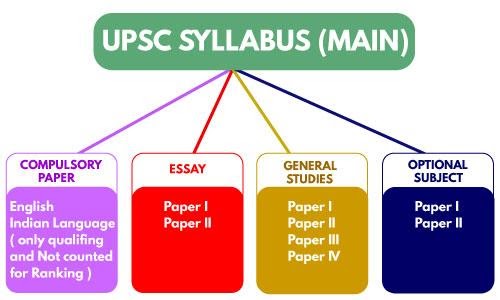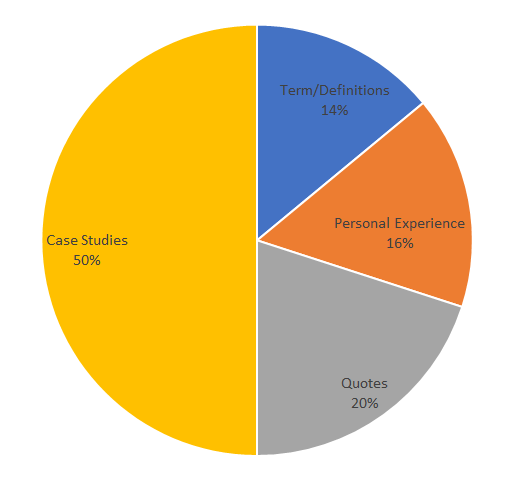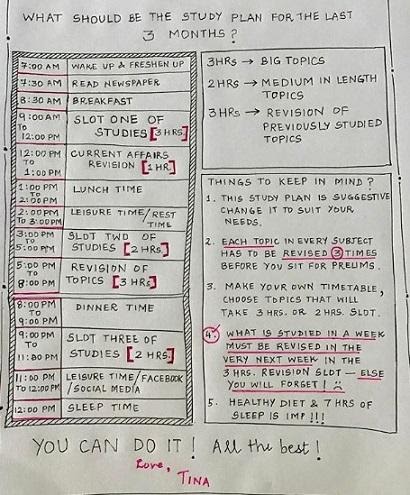(Getting Started) UPSC MAINS - Best Revision Strategy
(Getting Started) UPSC MAINS - Best Revision Strategy
Now that UPSC preliminary examinations are over, lakhs of aspirants are waiting for results. Not all will qualify but for the handful that will, the struggle has only begun. UPSC Mains is the monster they have to defeat to secure a good rank and achieve their IAS dream. Given the vast upsc syllabus, this is not the time to be learning new things. Instead, it is now time to concentrate hard on revising and polishing off the knowledge you already possess. The time constraint means that there has to be an effective revision strategy. Today, we discuss a revision strategy that will for sure give your mains preparation an edge over others.

Keep the UPSC Syllabus In Mind
General Studies
General Studies is a common hurdle in both prelims and mains. However, the way you approach the topics is different. If you have planned your preparation right, there are a very few additions you now need to make to your General Studies knowledge. So concentrate on revision instead.
A good strategy is to immediately sit with the syllabus, and topic notes if you have them, and see what additions can be made and if any material can be added or updated to them. Once that is done, now devise a weekly plan on which sections you need to cover each week. You are no longer trying to deal with just facts, so start writing answers on each relevant topic that you come across in the news. And don’t forget to keep updating your study notes with the latest current affairs.
Ethics and Essays

Ethics Paper Analysis
Average upsc aspirant would leave this to the last minute, but remember, your goal is to be above average. Try to write at least 3 essays and answer 3 case studies a week. Pick topics from previous year’s questions and ensure that you have a good grip over topics that are asked about frequently. Analyze the essays you write by comparing them with toppers' answers and improve your writing skills.
Writing at least 10-12 essays before the exam will give you the much-needed edge. Practicing enough case studies will ensure you write quality answers in the exam. Always remember that most UPSC aspirants who make it to the final list have similar scores in the first three GS papers. It is Essays and Ethics that decide who ranks on top.
Mains Optional
Start your optional revision from day one. Remember that the last time you read this material was probably 6 months ago and thus, it will take time to cover again. If you have some portion of the syllabus still incomplete, take a week right at the beginning, leaving aside the rest of the papers, and complete this first. Your optional can make or break your rank too.
For optional, writing is key. Update relevant topics with Current Affairs and make compact notes. You will most definitely need to make these connections in your exam paper, so start early. Make sure you have covered each topic in the syllabus and covered all PYQs of the last 10 years again.
Write, Write, Write

Topper Tina Dabi’s (AIR-1, UPSC CSE 2016) Revision Strategy
And finally, the key to writing good answers is to keep on writing regularly. It may not be possible to take full tests regularly, given how long each paper is, but ensure you write answers daily. Keep 2-3 hours of your day aside for this. And full-fledged tests are important. Ensure that you take at least 3 tests for each of the GS papers. Similarly, try taking at least 2 Essay and Ethics tests. For optional, at least 3 tests are required to analyze your preparation. And this also helps you figure out your time management technique and answer all questions in each paper.
Most importantly, don’t relax just yet. Keep pushing and working hard, and you will achieve your dream.
© IASEXAMPORTAL
CLICK HERE TO DOWNLOAD UPSC TOPPERS NOTES


